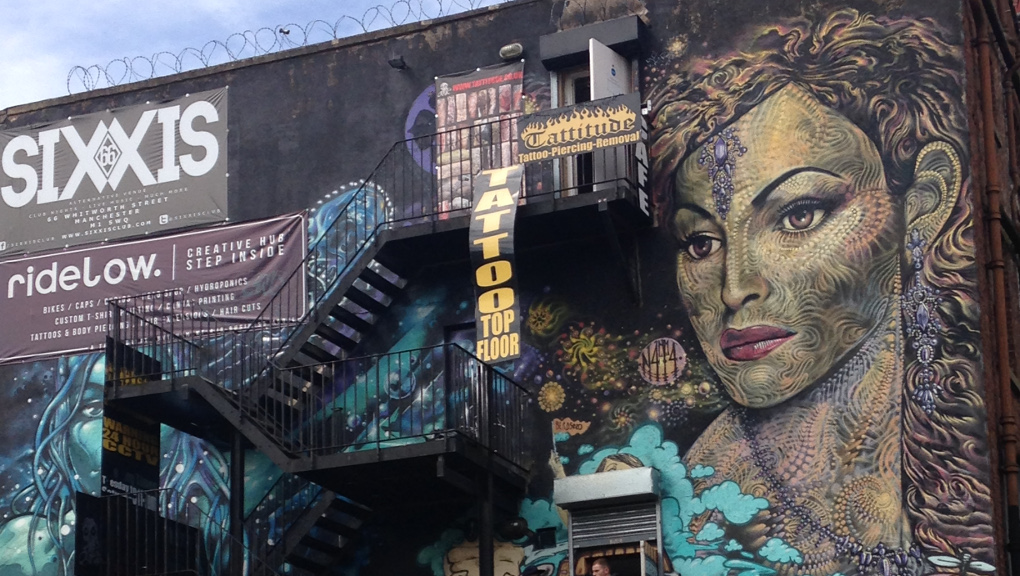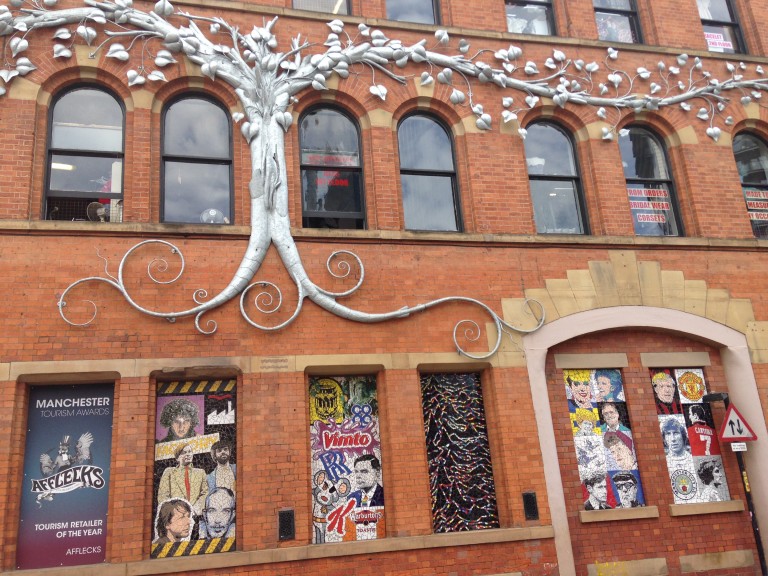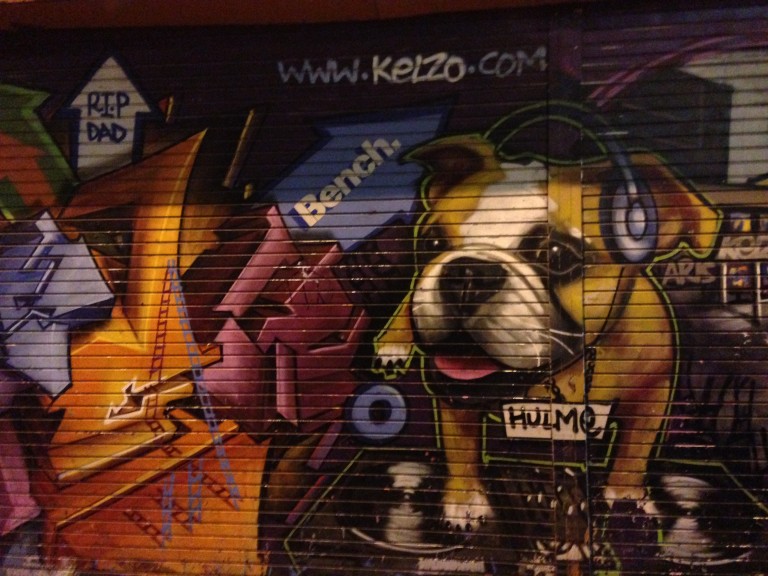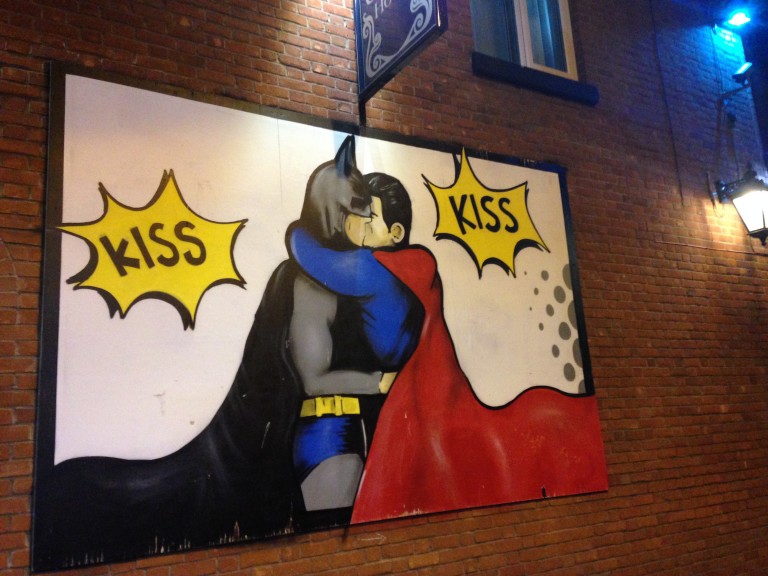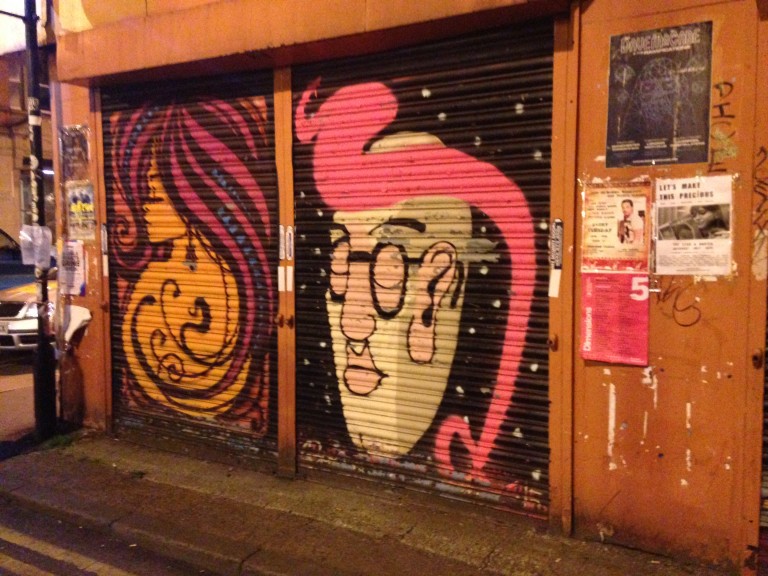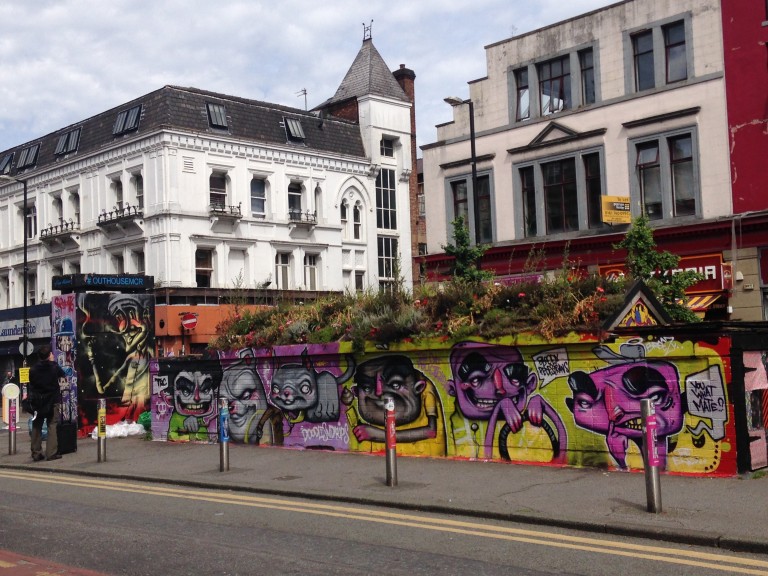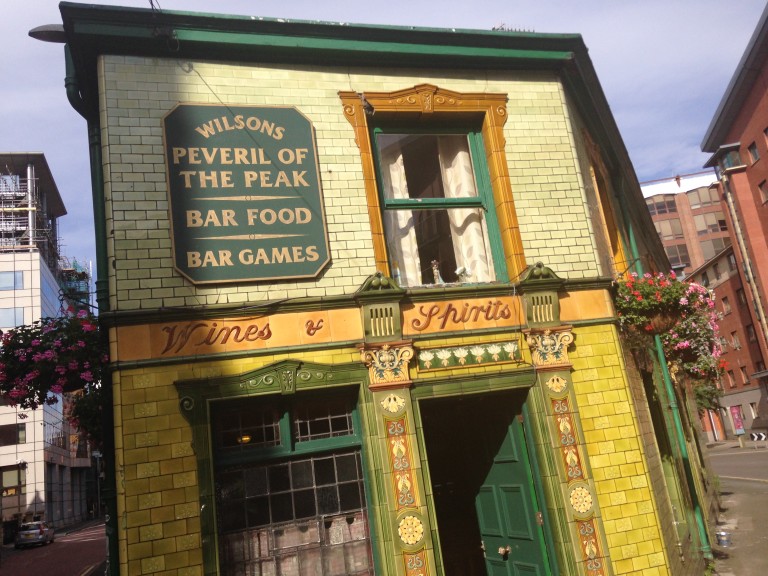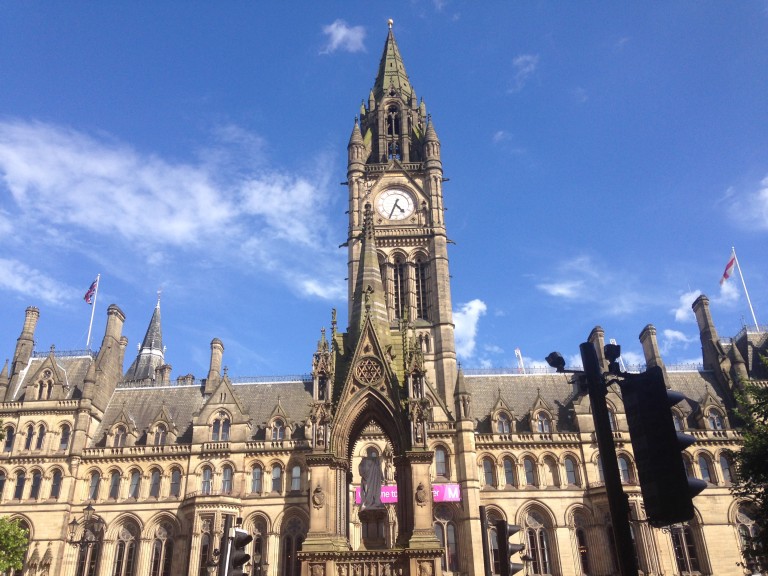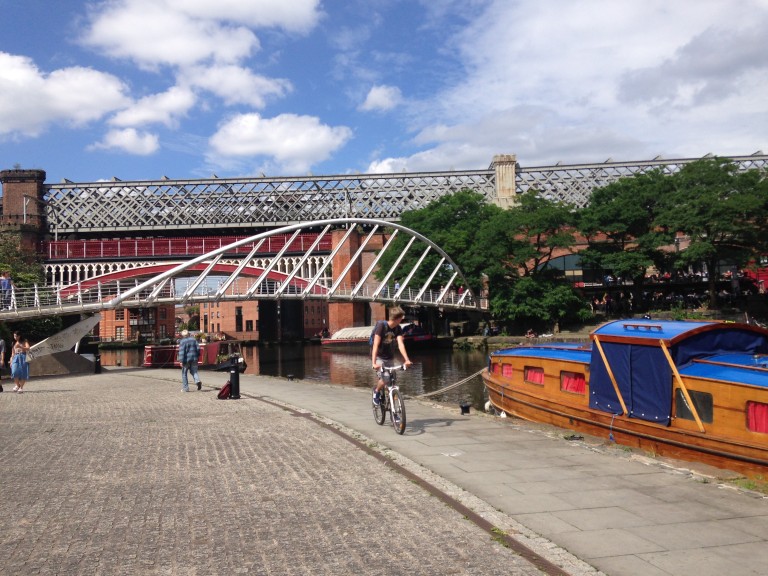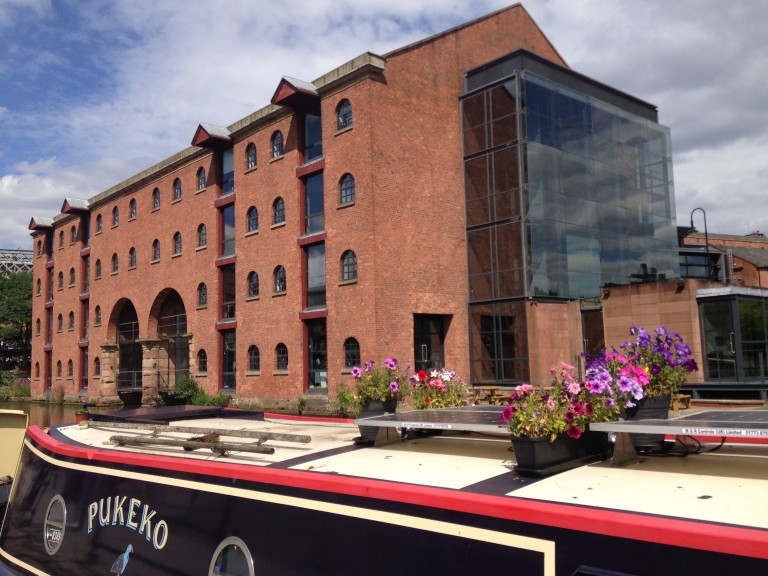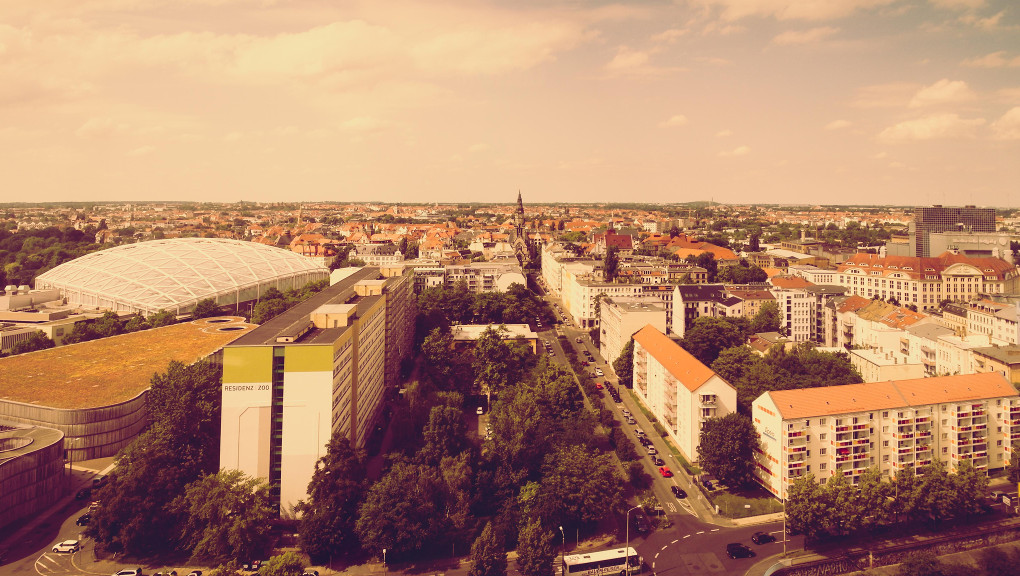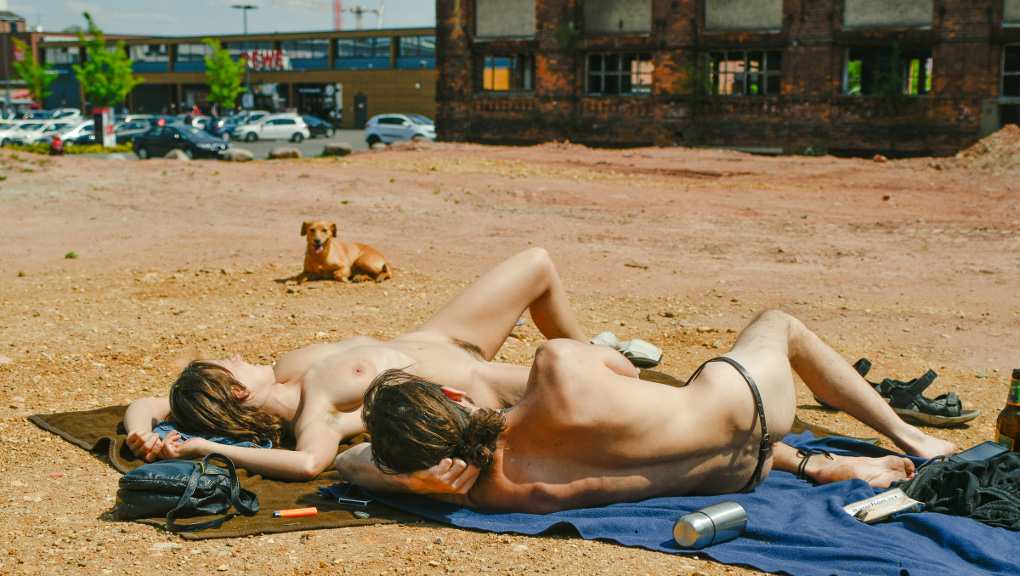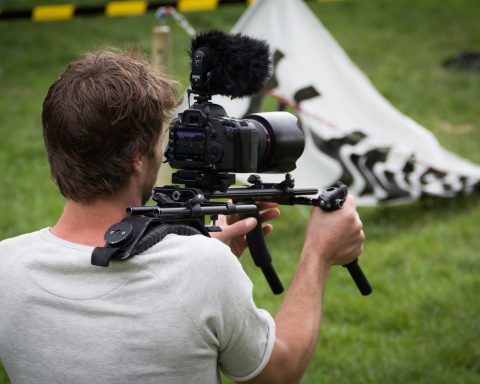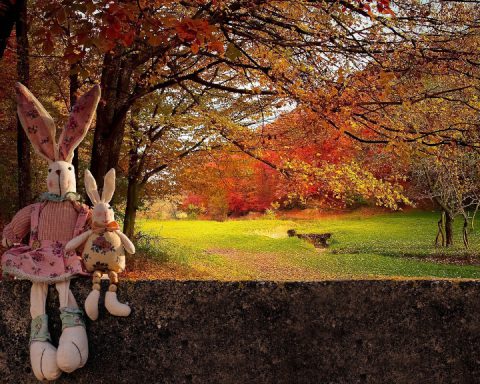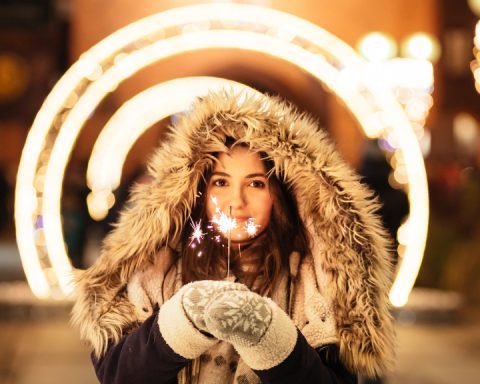The warm days I spent in Manchester right after losing my father were just the balm I needed at the time.
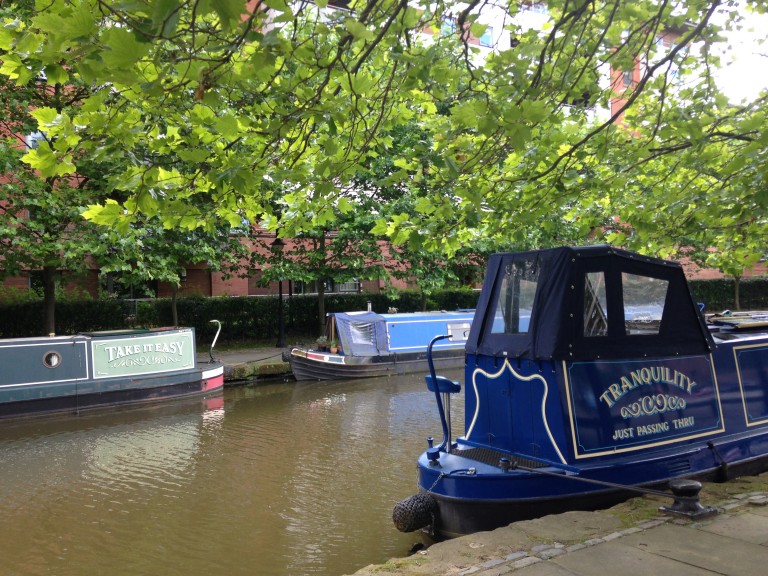
It was August 2016. The extended layover served as a buffer between my two very different realities in the US (where I had flown in from) and Germany (where I was headed back to).
The sightseeing was relaxed, the locals were friendly, and the street art was magnificent.
I really enjoyed browsing through the houseboats and imagining staying and riding in them. And looking at people from all walks of life brunching on Canal Street (the center of Manchester Gay Village). Ah, and hanging out at the charming pubs such as Peveril of the Peak. And also learning the art of using hourglasses to brew the perfect cup of tea.
I barely thought of the sooty Manchester of Friedrich Engels – except during some quick museum visit I can’t quite recall. It was definitely not the soccer museum (which I also visited, but out of a sheer sense of obligation, because come on, Manchester and its teams). I also did not get to see current poverty in the city.
Manchester showed me only pleasantness, in a time of great personal sadness.
And it’s this pleasantness that I always want to associate with the iconic English city. I am thankful for what it gave me then, and for what it’s given the world.
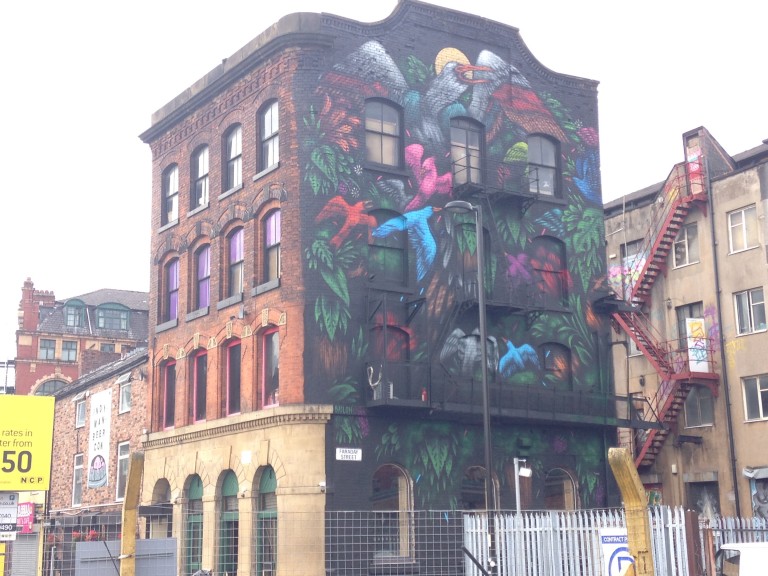
Greater Manchester is iconic also for its music scene, which gave us Oasis, The Smiths, Joy Division, New Order, Take That, Simply Red and other legends.
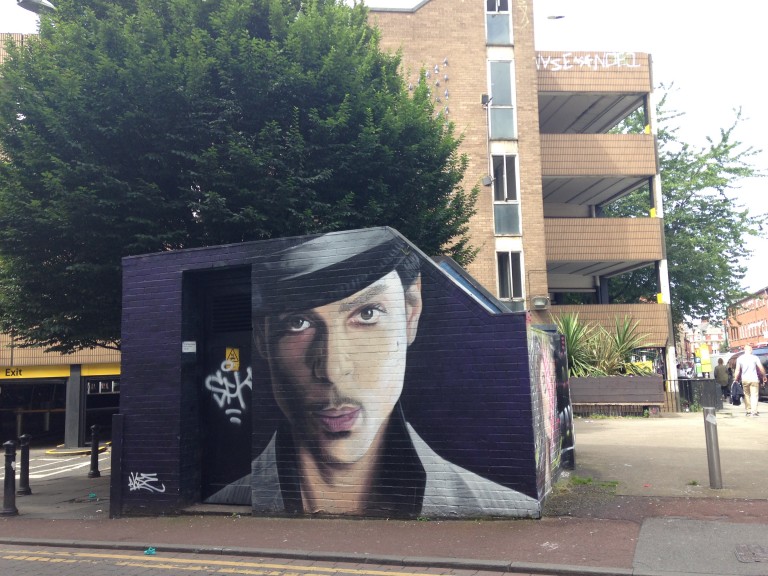
On Monday evening, 22 May, a terrorist attacked the city at its very heart, the Manchester Arena, which holds big concerts and sporting events. He killed and injured scores of people (including children) during a pop music concert (Ariana Grande’s). But it was heartening to read that voices from the city’s diverse, open, creative music scene immediately spoke up in defiance and in solidarity.
A DJ was quoted as saying, likely as an allusion to Joy Division’s most famous song:
You’ve got the wrong city if you think hate will tear us apart.
Its crowded city vigil on Tuesday was also filled with artistry, love and affirmations that the city – which is no stranger to terror attacks, having dealt with the IRA repeatedly in the past – will get through yet another dark, trying period.
Canal Street, symbol of tolerance and diversity, had rallied together in solidarity after the terrorist attack on the gay night club in Orlando last year. And others internationally are now speaking out in solidarity with Manchester.
Terrorists are the bad cells that are much fewer than the good ones, but which in their destructive power, work to disturb our functioning as a body, a unit, a society. All over the world.
They enter spaces that were once generally devoid of pain, trouble or fear, and vandalize them with their violence.
They creep into our nervous centers, which control our movements and direct our society, and try to fill them with hatred and distrust of the “other.”
Those ailing with fear become desperate for scapegoats and “black and white” solutions – and the body, the society, starts to close in upon itself, attacking the good cells if they behave or look any different than “usual.” Or if they fit a certain profile, conceived in blindness, ignorance or panic.
And that’s how society disintegrates. That’s how they win.
Let’s keep spreading our love, enjoying our favorite activities, going wherever we want, and peacefully fighting for a life where pleasant, tranquil afternoons are the norm. And let’s keep voting against the fear-mongers who fall for, and feed, the traps of terror.

